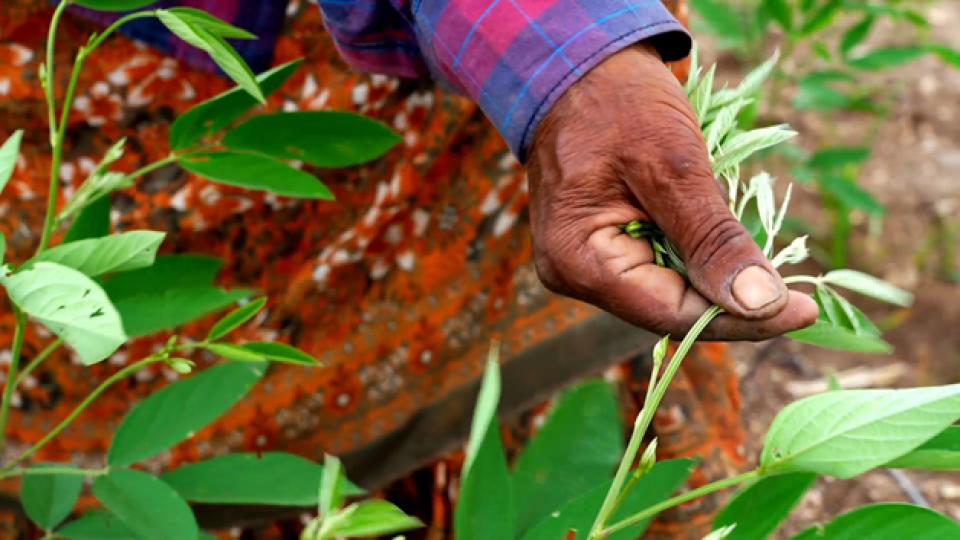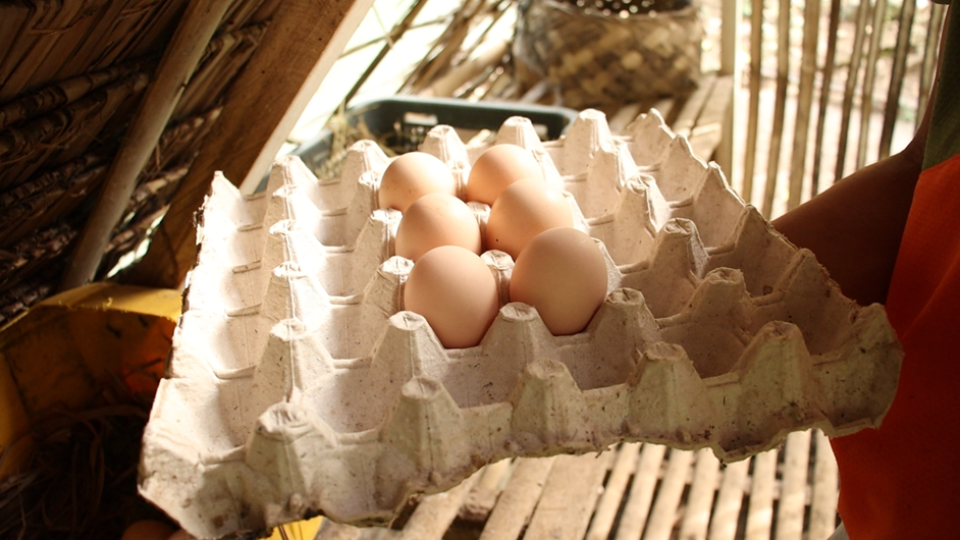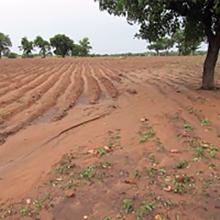
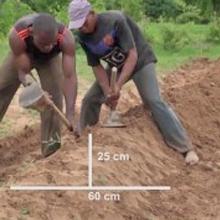
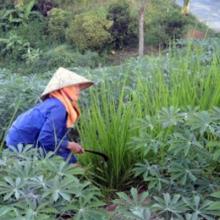
When farmers have limited access to arable land and soils are poor, limiting soil erosion can make the difference between harvesting a crop or nothing at all.
Soils are indeed at the core of any crop production system. Without a healthy soil, crops cannot thrive. While measuring the effect of soil erosion at national and global scales is almost impossible, all farmers see the difference when effective soil conservation techniques are in place.
Putting the right strategies in place to control erosion is becoming increasingly urgent as climate change is leading to rains becoming more erratic and intense than before.
From the gentle rolling lands in Burkina Faso to the steep hills in northern Vietnam, I have seen the devastating effects of rainfall on poorly managed soils. On gentle slopes of even as small as five degrees, the torrential rains wash away the topsoil and seal the top layer, after which no more water can penetrate the soil.
To remedy this, farmers in Burkina Faso learned about making contour bunds (raised ridges every 20 meters across the field) to allow the rainwater to infiltrate. On steeper slopes, where the land is much more difficult to be ploughed by animals or machines, vegetation barriers or terraces are possible solutions to stop soil erosion.
Depending on the slope, type of soil, availability of labour and other resources, a wide range of options are available to improve soil and water management. Networks such as WOCAT (the World Overview of Conservation Approaches and Technologies) support organisations working on the ground with farmers by making hundreds of sustainable soil and water management technologies available in an authoritative website.
While many development agencies and projects believe that encouraging smallholder farmers to use mineral fertilizers is the quickest way to solve low crop productivity, without proper soil conservation techniques farmers will see most of their money invested wash down the drain.
Related videos of Access Agriculture
Grass strips against soil erosion
And many more under Sustainable Land Management
Related blogs
Other resources
The WOCAT global database on Sustainable Land Management: https://qcat.wocat.net/en/wocat/

